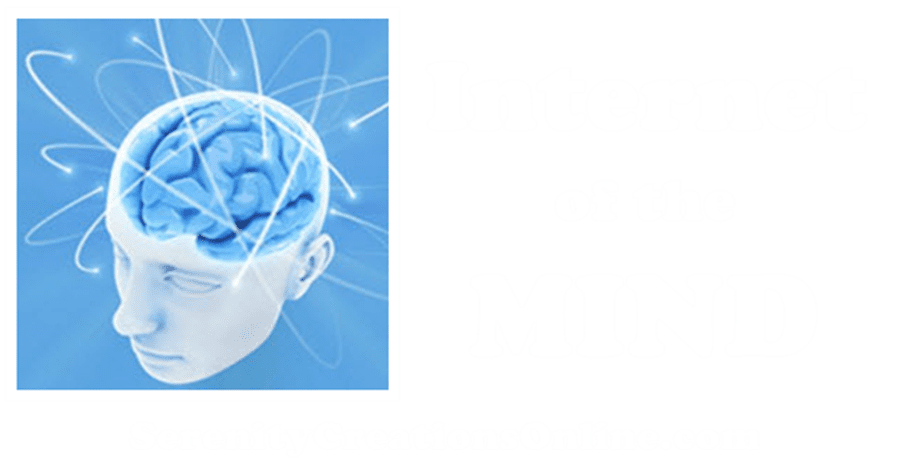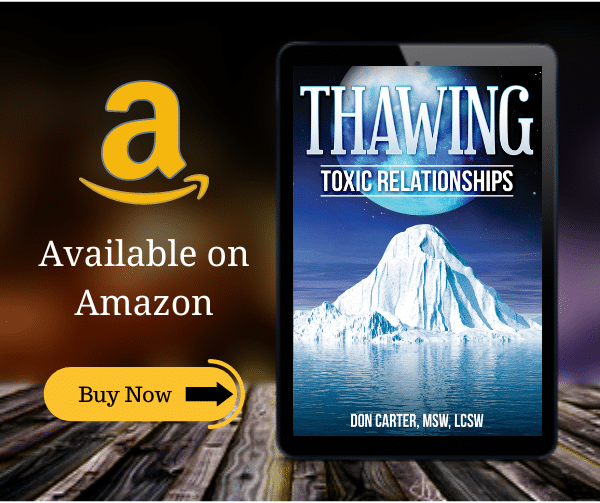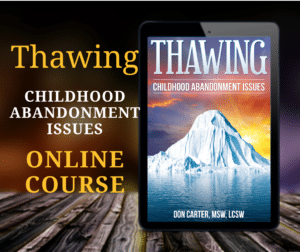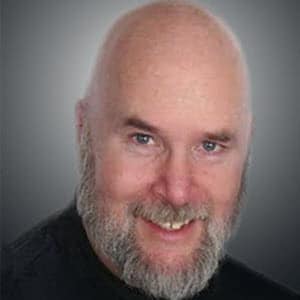
Core Issues & Human Development Stages
Erik Erikson outlines eight human development stages of life. These stages ultimately make us who we are by determining our core issues — i.e., personality traits, existential positions (Ok – Not Ok), and relationship styles.
Relationship Styles – Co-dependence & Counter-Dependence
As you explore this site you will see… or have seen… multiple references to Externalizers and Internalizers. These two relationship styles are not something we are born with. Another term for Internalizer is Codependent, Externalizers are also known as Counter-Dependent.

Both of the above relationship styles exist on a continuum so that each of us has the capability to move up and down on that scale at a given time — Unless we get stuck at one end or the other.
Human development stages include periods of healthy co-dependence and healthy counter-dependence — See Chart.
For example, in the initial stage of a relationship, healthy codependence helps us connect with another while healthy counter-dependence helps us establish and maintain our separateness or autonomy in relation to the other.
As you will see below, the very nature of our connectedness to our mother in the first stage of life, along with the permission given for us to separate in the second stage, sets the pace for how we connect and separate in later significant relationships.
Will it be a healthy balance of connectedness & separateness (Intimacy)? Or must we pursue an unavailable other driven by fear of abandonment (Codependent) — or distance ourselves from connections driven by fear of being trapped (Counter-dependent)?
So, moving through these developmental stages is not the problem — But getting stuck in one of them invites various issues of codependency such as polarization, marital problems, and mind games to play out in our personal relationships.
Getting stuck on this continuum is not a good thing either way if we want to have healthy and fulfilling relationships — but it may be the best we can do if we didn’t get childhood needs met and or have not otherwise received adequate training in healthy Intimacy Skills.
Erickson’s Eight Developmental Stages of Life

In other words, embedded in the following human development stages lies the roots of both Interpersonal and Intrapersonal problems. According to Erickson, each stage of development involves a crisis. It’s the resolution of this crisis that determines the outcome of a specific stage — i.e, positive or negative. (See Descriptions Below).
Negative outcomes fall on a continuum between what I have referred to as externalization and internalization. Positive outcomes do not fall on a continuum as they represent a healthy adjustment to that stage.
All other things being equal, kids who consistently get appropriate parenting throughout these developmental stages are expected to have good outcomes as one stage builds on the outcome of the previous stage. But kids who do not get the parenting they need are expected to have deficits in various stages. School, church, and other influences may also have an impact on the outcomes.
My Thesis…
As you review the stages outlined below, notice how one end of the negative outcomes continuum clearly defines the characteristics of the Angry/Defiant Child ego state, while the other end clearly defines the characteristics of the Vulnerable Child ego state.
Those who have experienced negative outcomes — most of us to some degree — can slide up and down on that continuum according to the circumstances and situation. However, those who have been hurt the worst may have repressed or “disowned” one of those ego states. They tend to experience and/or demonstrate a magnification of the other ego state — giving the impression of being stuck on one end of the continuum.
I propose that significantly negative outcomes result in the development of the full continuum. But… through the use of adaptive defenses employed by the Little Professor… one ego state is experienced consciously while the other is repressed, yet actively experienced subconsciously.
Key Point: An Externalizer consciously portrays their Angry/Defiant Child and an Internalizer consciously portrays their Vulnerable Child — while subconsciously, the opposite ego state exists and actively influences emotions, behavior, and relationships. This is clearly observed in the stages of development below as well as in the concept of psychological Sweatshirts as proposed by Eric Berne, MD.
Intra-personally: The outcome of each human development stage further entrenches our Existential Positions… the Angry/Defiant Child’s projective position of “I’m Ok, You’re Not Ok” and the Vulnerable Child’s introjective position of “I’m Not Ok, You’re Ok”. The Angry/Defiant Child projects their Critical Parent messages outward toward others while the Vulnerable Child introjects (turns inward) their Critical Parent messages, thereby perpetuating their own wounding process.
Outwardly, then, others may see only the existential position of the consciously expressed ego state — while inwardly the opposite existential position is also active through the repressed ego state. Inter-personally: Internalizers can vicariously experience separateness & autonomy through a connection with an Externalizer. In turn… Externalizers vicariously experience vulnerability through a connection with an Internalizer.
After reviewing the developmental stages below, ask yourself this question… Is it any wonder how Givers & Takers, Distancers & Pursuers, or Persecutors & Victims end up in a relationship together? The problem with this kind of Polorization is that it takes two people to make a whole person. This is what makes the idea of separation from a bad relationship terrifying — Subconsciously they each know that it would be like dividing themselves in half.
To sum up… Intrapersonally, each person with negative outcomes holds both existential positions — This is accomplished by the defenses of Reaction Formation and Repression. Interpersonally, they need each other to experience the disowned half of themselves — accomplished through subconscious perception and the defense mechanisms of Projection and Introjection.
Note: During a crisis, or periods of ongoing high stress, a person’s defenses may collapse entirely resulting in the conscious experience of both ego states at once. This can result in the futility position of “I’m Not Ok, You’re Not Ok” — These are periods of danger and, in many cases, an indication of the need for immediate professional help.
Human Development Stage One
-
Basic Trust vs. Mistrust
– 0-2 years old
- Infancy, aka the Oral Stage
- Positive Outcome:
- Healthy Trust – “I’m Ok, You’re Ok”
- Negative Outcomes:
- Controlling – “I’m Ok, You’re not Ok”
- Gullible – “You’re Ok, I’m not Ok”
Human Development Stage Two
-
Autonomy vs. Shame/Doubt
– 2-3 years old
- Toddler; aka the Anal Stage
- Positive Outcome:
- Independence & Healthy Boundaries – “I’m Ok, You’re Ok”
- Negative Outcomes:
- Shameless/Needless – “I’m Ok, You’re not Ok”
- Shameful/Needy – “You’re Ok, I’m not Ok”
Human Development Stage Three
-
Initiative vs. Guilt
– 3.5-7 years old
- Preschooler; aka the Phallic Stage
- Positive Outcome:
- Enterprise and Exploring Personal Limits – “I’m Ok, You’re Ok”
- Negative Outcomes:
- Aggressive – “I’m Ok, You’re not Ok”
- Passive – “You’re Ok, I’m not Ok”
Human Development Stage Four
-
Industry vs. Inferiority
– 7 to Puberty
- School-Age; aka the Latency Stage
- Positive Outcome:
- Competence and Mastery — “I’m Ok, You’re Ok”
- Negative Outcomes:
- Grandiosity – “I’m Ok, You’re not Ok”
- Inferiority – “You’re Ok, I’m not Ok”
Human Development Stage Five
-
Identity vs. Identity Diffusion
– Puberty to 20 years old
- Adolescence – “Who am I”
- Positive Outcome:
- Healthy Sense-of-Self – “I’m Ok, You’re Ok”
- Negative Outcomes:
- More than human – “I’m Ok, You’re not Ok”
- Less than human – “You’re Ok, I’m not Ok”
Human Development Stage Six
-
Intimacy vs. Isolation
– 20 to 30 years old
- Young Adulthood – Love & Work
- Positive Outcome:
- Intimacy & Authenticity – “I’m Ok, You’re Ok”
- Negative Outcomes:
- All-About-Me – “I’m Ok, You’re not Ok”
- All-About-You – “You’re Ok, I’m not Ok”
Human Development Stage Seven
-
Generativity vs. Stagnation
– 30 to 60 years old
- Middle Adulthood – Community
- Positive Outcome:
- Giving Back to Next Generation – “I’m Ok, You’re Ok”
- Negative Outcomes:
- Self-Indulgence – “I’m Ok, You’re not Ok”
- Self-Denial – “You’re Ok, I’m not Ok”
Human Development Stage Eight
-
Ego-Integrity vs. Despair
– 60+ years old
- Late Adulthood – Wisdom
- Positive Outcome:
- Faith and Fullness of Life – “I’m Ok, You’re Ok”
- Negative Outcomes:
- Empty & Blaming – “I’m Ok, You’re not Ok”
- Fear & Regrets – “You’re Ok, I’m not Ok”













